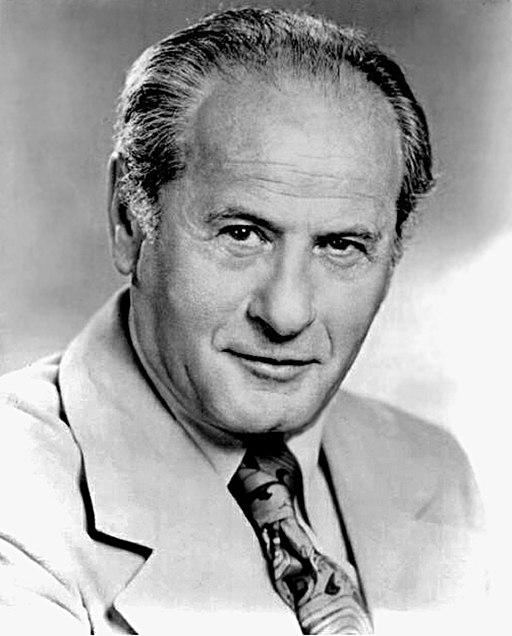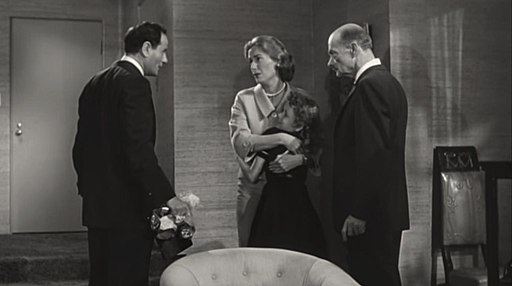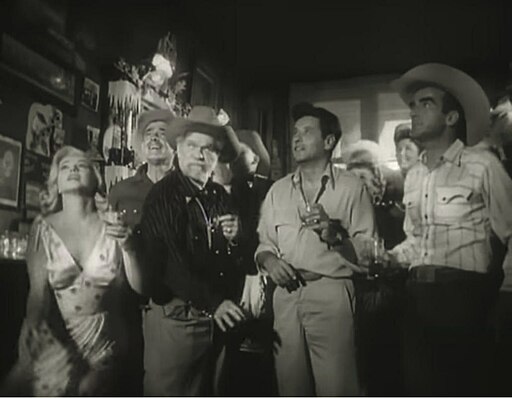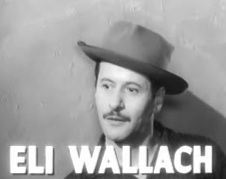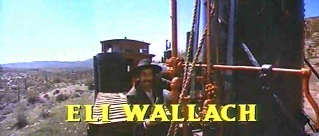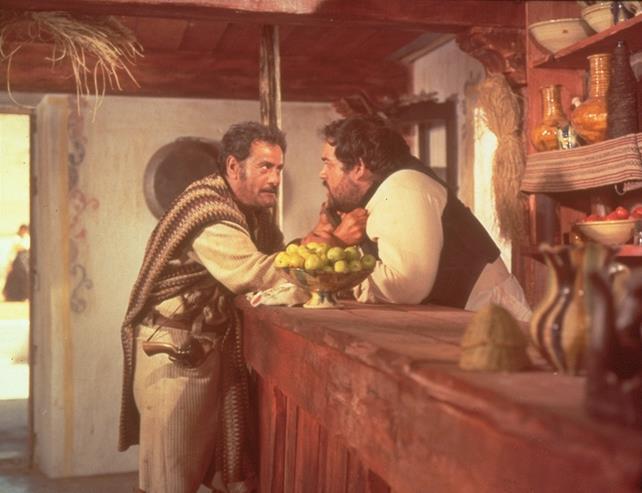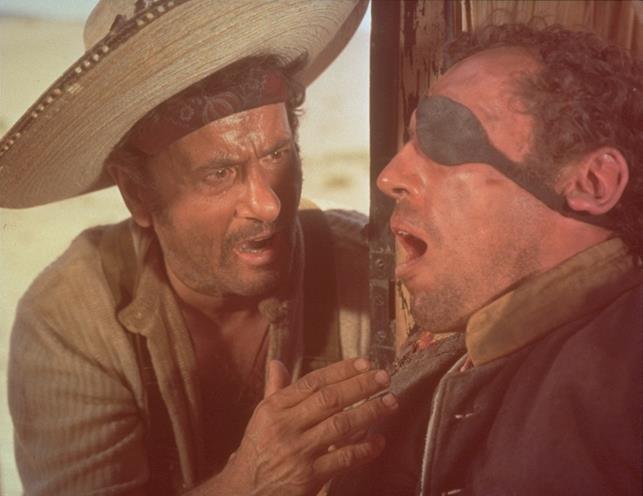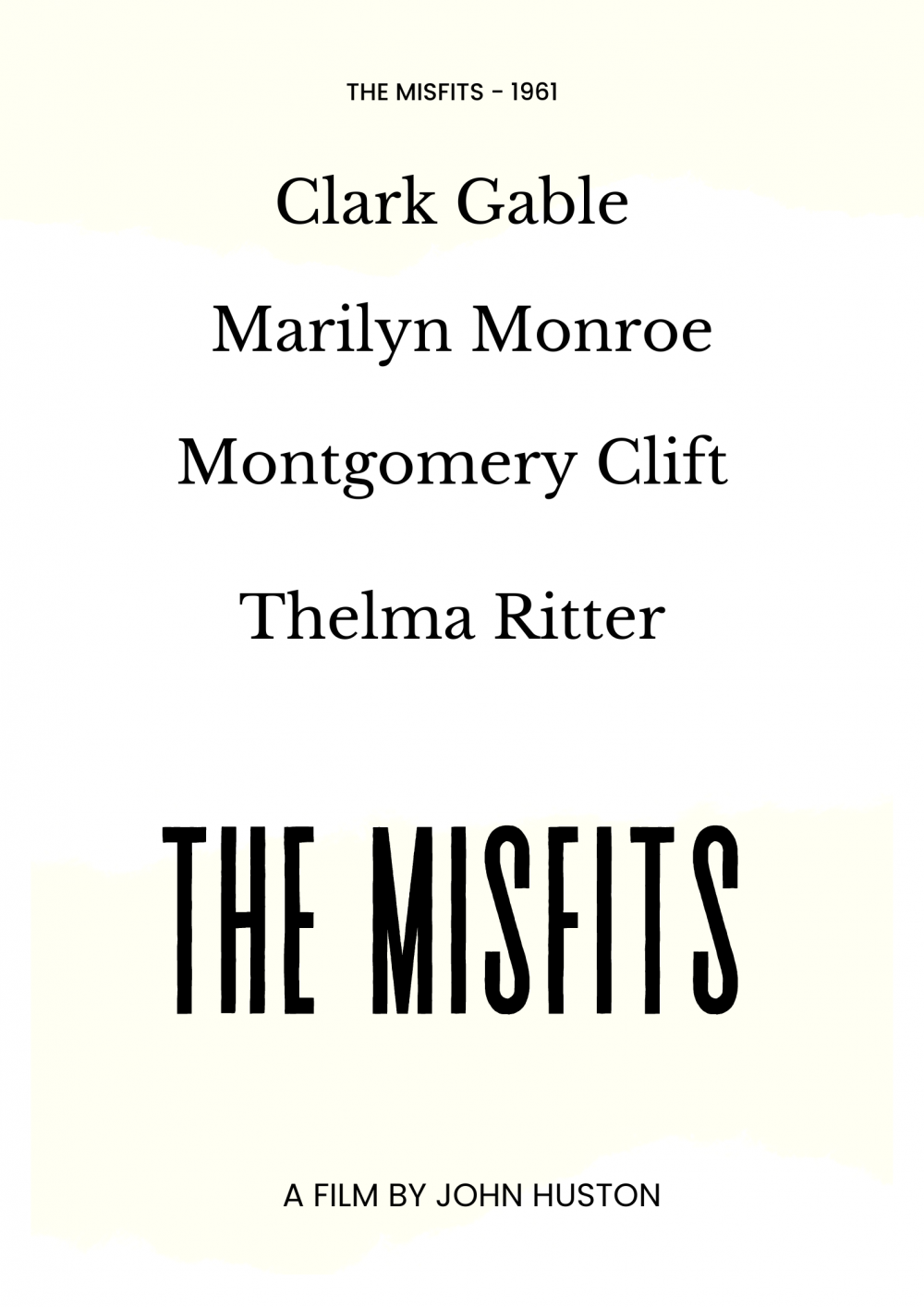Eli Wallach
back| Full Name | Eli Herschel Wallach |
| Stage Name | Eli Wallach |
| Born | December 7, 1915 |
| Birthplace | Brooklyn, New York City, U.S. |
| Died | June 24, 2014 |
| Buried | West Babylon, New York, USA |
| Married to | Anne Jackson (m. 1948–2014, his death) |
| Children | Peter Wallach - Katherine Wallach - Roberta Wallach |
| Notable films | The Magnificent Seven (1960) - The Good, the Bad and the Ugly (1966) - Baby Doll (1956) - The Misfits (1961) - The Godfather Part III (1990) |
Eli Wallach
The Character Actor
Eli Wallach's career spanned over six decades, and he was known for his ability to play a wide range of characters. He was awarded an Honorary Academy Award in 2010 for his contribution to the film industry.
His acting style, often described as method acting, brought depth and authenticity to his characters, making him a favorite among directors and audiences alike.
Related
Eli Wallach (1915 – 2014)
Biography and Analysis of his Career
Eli Wallach's life and career were as rich and varied as the characters he portrayed on screen and stage.
Eli Herschel Wallach was born on December 7, 1915, in Brooklyn, New York City, to Jewish immigrant parents from Poland. He was the youngest of four children in a family where culture and education were highly valued. His upbringing in a multicultural neighborhood in Brooklyn played a crucial role in shaping his understanding and appreciation of diverse cultures.
Wallach attended the University of Texas at Austin, where he gained a love for acting. He later studied at the Neighborhood Playhouse School of the Theatre in New York City under the guidance of influential acting teacher Sanford Meisner. His education was interrupted by World War II, during which he served as a medical administrative officer in the United States Army, achieving the rank of captain.
After the war, Wallach returned to New York to pursue his acting career. He became one of the early members of the Actors Studio, where he honed his method acting skills alongside contemporaries like Marlon Brando and Montgomery Clift.
Wallach's Broadway debut came in 1945 with "Skydrift," which marked the beginning of his illustrious stage career. His performance in Tennessee Williams' "The Rose Tattoo" (1951) earned him a Tony Award, solidifying his reputation as a talented stage actor.
Transition to Film and Hollywood Success
Wallach made his film debut in "Baby Doll" (1956), directed by Elia Kazan, which earned him a BAFTA Award for Most Promising Newcomer. This marked the start of a successful film career, with roles in iconic films like "The Magnificent Seven" and "The Good, the Bad and the Ugly." His portrayal of complex characters, often with a touch of villainy, made him a memorable and versatile actor.
Marriages and Family
In 1948, Wallach married actress Anne Jackson, a union that lasted until her death in 2016. Together, they were a powerhouse couple in the theater world and had three children: Peter, Katherine, and Roberta. Their marriage was known for its strength and mutual respect, both professionally and personally.
Passions and Interests
Wallach's passion for acting was matched by his love for teaching. He often shared his knowledge and experience with younger actors and was known for his generosity in the acting community. Additionally, he enjoyed writing and published an autobiography, "The Good, the Bad, and Me," in which he reflected on his life and career.
Death and Legacy
Eli Wallach passed away on June 24, 2014, at the age of 98. The cause of his death was reported as natural causes. His legacy lives on through his extensive body of work in film, television, and theater. Wallach was recognized for his contributions to the arts with an Honorary Academy Award in 2010, celebrating his lifetime achievements and influence in the field of acting.
Eli Wallach remains remembered not only for his diverse and powerful performances but also for his dedication to the craft of acting and his impact on generations of actors and audiences alike. His journey from the streets of Brooklyn to the heights of Hollywood success is a testament to his talent, hard work, and enduring appeal as an artist.
Video on why Eli Wallach often played the Bad Guy:
Notable Movies Starring Eli Wallach:
1950s
- 1956, "Baby Doll": Directed by Elia Kazan, this controversial film was about a sexually frustrated husband who torments his teenage bride and her business rival.
- 1958, "The Lineup": A crime film where Wallach plays a hitman involved in a series of murders in San Francisco.
1960s
- 1960, "The Magnificent Seven": A Western about a group of American gunmen hired to protect a small Mexican village from a group of bandits, with Wallach playing the main antagonist, Calvera.
- 1961, "The Misfits": Starring alongside Marilyn Monroe and Clark Gable, Wallach plays a character in this drama about a divorcée who falls for an aging cowboy.
- 1962, "How the West Was Won": An epic-Western following the Prescott family through several generations, with Wallach in a supporting role.
- 1964, "The Moon-Spinners": A Disney adventure film set in Crete, featuring Wallach as a criminal.
- 1965, "Lord Jim": Based on Joseph Conrad's novel, Wallach plays "The General", a warlord, in this story of a British seaman.
- 1966, "The Good, the Bad and the Ugly": A landmark Spaghetti Western where Wallach stars as Tuco ("The Ugly"), a wanted outlaw.
1970s
- 1970, "The People Next Door": Wallach plays a father in a drama about the struggles of a suburban family.
- 1971, "The Light at the Edge of the World": A drama about pirates taking over a lighthouse on a remote island, with Wallach in a key role.
- 1976, "The Sentinel": A horror film where Wallach plays a detective investigating a mysterious apartment building.
1980s
- 1980, "The Hunter": Wallach appears in this action film about a bounty hunter on his final assignment.
- 1987, "Nuts": In this courtroom drama, Wallach plays a psychiatrist examining a high-class call girl charged with murder.
1990s
- 1990, "The Godfather Part III": Wallach plays an aging Mafia Don, Don Altobello, in this final installment of the Godfather trilogy.
- 1991, "Article 99": A dramedy set in a Veterans' Administration hospital, with Wallach in a supporting role.
- 1997, "The Associate": A comedy where Wallach plays a businessman involved in the New York financial world.
2000s
- 2003, "Mystic River": Directed by Clint Eastwood, this crime drama features Wallach in a minor role.
- 2006, "The Holiday": A romantic comedy where Wallach plays an elderly screenwriter who befriends one of the main characters.
Analysis of Eli Wallach’s Acting Style:
Eli Wallach's acting style was characterized by its versatility, depth, and an innate ability to bring a unique authenticity to every role he portrayed. As a trained stage actor and a member of the Actors Studio, Wallach was heavily influenced by Method acting, a technique that encourages actors to use their personal experiences and emotions to bring realism to their performances. His approach to acting was both nuanced and deeply immersive, allowing him to create characters that were multi-dimensional and richly textured.
- Emotional Depth and Authenticity: Wallach had a remarkable ability to convey the internal struggles and emotions of his characters. He was adept at accessing a wide range of emotions, from vulnerability to aggression, often within the same role. This emotional depth made his characters feel real and relatable.
- Physicality and Expression: His performances were often marked by a distinctive use of body language and facial expressions. Whether playing a menacing villain or a comedic character, Wallach's physicality was always finely tuned to the nature of the role, adding layers to his performances.
- Versatility: Wallach's career was defined by his versatility. He successfully portrayed a wide array of characters across different genres. From Western outlaws to complex urban characters, he could adapt his style to suit the demands of each role, showing a remarkable range as an actor.
- Commitment to Character: Wallach was known for his complete commitment to every role he played. He immersed himself in the world of his characters, often going to great lengths to understand their backgrounds, motivations, and psyche. This dedication was evident in the authenticity and credibility of his performances.
- Dynamic Presence: Wallach had a dynamic screen presence that captivated audiences. Even in supporting roles, he had the ability to command attention and often stole scenes with his charismatic and intense performances.
- Subtlety and Nuance: While capable of larger-than-life portrayals, Wallach also excelled in subtlety and nuance. He understood the power of understatement and often conveyed the essence of his characters through small, finely-judged details in his performances.
- Voice and Diction: Wallach's voice was another powerful tool in his acting arsenal. He used variations in tone, accent, and pacing to bring additional depth to his characters, making each one distinct and memorable.
Memorable Quotes from Eli Wallach:
Eli Wallach's career was filled with memorable lines and quotes, both from his characters and his own insights. Here are some notable quotes from his films and personal reflections:
Memorable Quotes from His Films:
From "The Good, the Bad and the Ugly" (1966):
- As Tuco, Wallach famously said, "When you have to shoot, shoot. Don't talk." This line perfectly captured his character's pragmatic approach to life and has become iconic in cinema history.
From "The Magnificent Seven" (1960):
- Playing the bandit leader Calvera, Wallach delivered the memorable line, "If God didn't want them sheared, he would not have made them sheep." This quote underscored the ruthless, yet philosophical nature of his character.
Personal Quotes:
On Acting:
- Eli Wallach once said, "Having the critics praise you is like having the hangman say you've got a pretty neck." This witticism reflects his perspective on the fleeting and sometimes superficial nature of critical acclaim.
On Life and Career Choices:
- Reflecting on his choices, he remarked, "I've always been a character actor. I've never been a leading man. It gave me an opportunity to play a broad spectrum of parts over my lifetime." This quote highlights his appreciation for the diversity of roles he was able to portray.
On Theater vs. Film:
- Wallach, with his deep roots in theater, once noted, "The theater is who I am – it's where I feel the most inspired, the most at home, the most useful." This statement reflects his enduring love for the stage and its impact on his life and career.
On Longevity and Work:
- In his later years, Wallach humorously observed, "I never lost my appetite for acting; I feel it's like asking a painter why does he keep painting, or a singer why does he keep singing." This quote shows his lifelong passion for his craft.
Significance of his Part in “Baby Doll”:
Eli Wallach's performance in "Baby Doll" (1956) was a pivotal moment in his career, marking his film debut and establishing him as a significant talent in Hollywood. Directed by Elia Kazan and written by Tennessee Williams, the film was controversial for its time, dealing with themes of sexual repression and moral decay in the American South.
Significance of His Performance:
- Critical Acclaim: Wallach's portrayal of Silva Vacarro, a Sicilian cotton mill owner, was met with critical acclaim. His ability to convey both charm and underlying menace was particularly noted. This role showcased his versatility and depth as an actor, earning him recognition and respect in the film industry.
- Transition from Stage to Screen: Prior to "Baby Doll," Wallach had primarily been a stage actor. His success in this film demonstrated his ability to transition seamlessly from theater to cinema, a significant achievement given the different demands of each medium.
- Introduction to a Wider Audience: While Wallach was already respected in theater circles, "Baby Doll" introduced him to a broader audience. The film's notoriety and success helped boost his profile and opened up more opportunities in Hollywood.
- Collaboration with Renowned Artists: Working with Elia Kazan and Tennessee Williams, both giants in their fields, was a significant aspect of Wallach's role in "Baby Doll." This collaboration not only added prestige to his career but also allowed him to learn and grow as an actor.
- Establishment as a Character Actor: The role of Silva Vacarro solidified Wallach's reputation as a compelling character actor. He was able to bring complexity and nuance to a challenging role, traits that would define his career.
- Awards and Recognition: Wallach's performance in "Baby Doll" earned him a BAFTA for Most Promising Newcomer. This accolade further cemented his status as a talented and promising actor in the film industry.
- Influence on Future Roles: The success of "Baby Doll" opened the door for Wallach to take on a variety of roles in different genres, including his iconic performances in "The Magnificent Seven" and "The Good, the Bad and the Ugly."
Relationship with Clint Eastwood:
Eli Wallach and Clint Eastwood shared a professional relationship and mutual respect, primarily stemming from their work together on the iconic film "The Good, the Bad and the Ugly" (1966). In this Sergio Leone-directed Spaghetti Western, Eastwood and Wallach played two of the titular characters – Eastwood as "Blondie" (The Good) and Wallach as "Tuco" (The Ugly).
- Professional Collaboration: Their collaboration on "The Good, the Bad and the Ugly" was significant in the Western genre. The chemistry between the two actors on screen was palpable and contributed greatly to the film's success and enduring popularity.
- Mutual Respect: Both actors, coming from different acting backgrounds, respected each other's craft and approach to acting. Eastwood, known for his laconic style, and Wallach, known for his method acting and theatrical background, found a unique balance in their scenes together.
Clint Eastwood's Comments on Wallach:
- Praise for His Talent: Clint Eastwood has been known to speak highly of Wallach's acting ability. He acknowledged Wallach's significant contribution to the success of "The Good, the Bad and the Ugly." Eastwood appreciated the energy and depth Wallach brought to his character, Tuco.
- Reflections on Working Together: In interviews and discussions about the film, Eastwood has reflected positively on their time working together. He often highlighted the professional and creative atmosphere on the set, partly attributed to Wallach's approach to his role.
- Posthumous Tributes: Upon Wallach's death in 2014, Eastwood was among those who paid tribute to him. He expressed admiration for Wallach's long and varied career and noted his passing as a loss to the acting community.
Awards and Recognition:
Academy Awards
- 2010: Received an Honorary Academy Award for his lifetime achievement in film. This special Oscar recognized his contributions to the art of the motion picture.
Tony Awards
- 1951: Won the Tony Award for Best Featured Actor in a Play for his role in "The Rose Tattoo."
- 1967: Nominated for Best Actor in a Play for his performance in "The Tiger."
BAFTA Awards
- 1957: Won the BAFTA Award for Most Promising Newcomer to Leading Film Roles for "Baby Doll."
Emmy Awards
- Wallach had several Emmy nominations throughout his career, recognizing his work in television.
Other Honors and Awards
- 1966: Won a David di Donatello Award for Best Foreign Actor for "The Good, the Bad and the Ugly."
- 2005: Awarded a star on the Hollywood Walk of Fame for his contributions to the film industry.
- Lifetime Achievement Awards: Wallach received numerous lifetime achievement awards from various film festivals and actor's guilds, celebrating his extensive career and contributions to the performing arts.
Overview of all Movies featuring Eli Wallach:
- Baby Doll (1956)
- The Lineup (1958)
- Seven Thieves (1960)
- The Magnificent Seven (1960)
- The Misfits (1961)
- Hemingway's Adventures of a Young Man (1962)
- How the West Was Won (1962)
- The Victors (1963)
- Act One (1963)
- Kisses for My President (1964)
- The Moon-Spinners (1964)
- Lord Jim (1965)
- How to Steal a Million (1966)
- The Good, the Bad and the Ugly (1966)
- The Poppy Is Also a Flower (1966)
- The Tiger Makes Out (1967)
- Ace High (1968)
- How to Save a Marriage and Ruin Your Life (1968)
- A Lovely Way to Die (1968)
- The Brain (1969)
- Mackenna's Gold (1969)
- The Adventures of Gerard (1970)
- Cinderella Liberty (1973)
- The Deep (1977)
- Movie Movie (1978)
- Girlfriends (1978)
- Circle of Iron (1978)
- Winter Kills (1979)
- The Hunter (1980)
- The Salamander (1981)
- The Executioner's Song (1982) - TV Movie
- Sam's Son (1984)
- Tough Guys (1986)
- Nuts (1987)
- Mistress (1987)
- The Impossible Spy (1987) - TV Movie
- The Two Jakes (1990)
- The Godfather Part III (1990)
- Article 99 (1992)
- Night and the City (1992)
- Mistress (1992)
- Legacy of Lies (1992) - TV Movie
- Naked City: A Killer Christmas (1998) - TV Movie
- Keeping the Faith (2000)
- The Bookfair Murders (2000) - TV Movie
- The Associate (2000)
- The Mexican (2001)
- Mystic River (2003)
- King of the Corner (2004)
- The Moon and the Son: An Imagined Conversation (2005) - Short
- The Holiday (2006)
- The Hoax (2006)
- Mama's Boy (2007)
- New York, I Love You (2008)
- Wall Street: Money Never Sleeps (2010)

